As a seasoned professional transitioning into an encore career, you possess a wealth of knowledge and experience. This phase of your career isn’t just a continuation; it’s an opportunity for reinvention, for focusing on what truly matters to you, and for doing work that’s aligned with your values. However, one of the crucial steps in a successful transition is identifying your ideal client. Knowing who you want to serve will guide your business decisions, improve your marketing efforts, and ensure that your services resonate deeply with those who need them most. Here’s a step-by-step guide to discovering and defining your ideal client in your encore career.
Reflect on Your Experiences and Passions
Your unique journey has equipped you with specialized skills and insights. Reflect on your past roles, projects, and passions. What did you enjoy the most? Who benefited the most from your expertise? For instance, if you’ve spent decades in corporate finance but found joy in mentoring young professionals, you might find fulfillment in coaching mid-career professionals looking to advance.
At LynnFriesth.com, I’ve discovered that aligning my services with my core passions not only brings personal satisfaction but also attracts clients who resonate with my values. This phase is about blending your expertise with what genuinely excites you.
Consider the Challenges You Want to Solve
What pressing issues are you most passionate about addressing? Maybe you thrive in helping individuals manage major life transitions, or perhaps you’re skilled in guiding businesses through financial turbulence. Understanding the problems and challenges you’re best equipped to solve will clarify who your ideal clients are. For example, if you’re passionate about helping retirees transition smoothly into this new chapter, your ideal clients might be individuals aged 55+ who are navigating the transition to retirement (that one sounds perfect to me wink, wink).
Define Demographic and Psychographic Characteristics
Start by detailing basic demographic information: age, gender, occupation, education level, and geographic location. However, defining your ideal client isn’t just about demographics; consider psychographics as well: their values, interests, lifestyle, and challenges. A holistic understanding of these characteristics will help you tailor your approach effectively.
For example, if you’re providing career transition coaching, your ideal clients might be seasoned professionals in their 50s and 60s who value lifelong learning and personal development, but are unsure of how to navigate their next career step. Sound familiar?
Develop Client Personas
A client persona is a semi-fictional representation of your ideal client based on market research and real data. Creating detailed personas can humanize your target audience and provide clarity. For instance, you might create a persona named “John,” a 60-year-old former executive who values flexibility, is interested in consulting, and is seeking to balance professional work with personal hobbies.
Here’s a basic template: - Name: John - Age: 60 - Occupation: Former Corporate Executive - Values: Flexibility, Work-Life Balance, Continuous Learning - Challenges: Transitioning to Consulting, Finding New Opportunities, Navigating Work-Life Balance
Engage in Conversations and Gather Feedback
Understanding your ideal client can be significantly enhanced through direct conversations. Engage with your existing network, join online forums, and participate in community events related to your field. Ask questions to unearth their biggest struggles, desires, and motivations. This direct feedback is invaluable and can offer insights that data alone cannot.
When I first transitioned into my encore career, I spent time conversing with peers and potential clients to truly understand their concerns and aspirations. This helped refine my offerings and clarified my messaging.
Test and Refine Your Assumptions
Launching your encore career may require some trial and error. Test your client personas by marketing your services to these profiles and observe the responses. Are they engaging with your content? Are they responding to your offers? Use metrics and feedback to tweak your approach and refine your understanding of your ideal client.
Create Targeted Messaging
Once you’ve identified and refined your ideal client profiles, develop targeted messaging that speaks directly to their needs and desires. Your communication should convey empathy, understanding, and a clear solution to their problems. Whether it’s through blog posts, social media, or direct communications, your messaging should resonate deeply with your ideal clients.
For instance, your blog posts can address common concerns your target demographic faces, such as “How to Transition to a Consulting Career After Retirement” or “Balancing Personal Passions with Professional Work in Your 60s.”
Discovering and defining your ideal client is a dynamic process. It involves introspection, research, and ongoing refinement. In your encore career, this clarity will not only attract the right clients but also ensure that your work remains fulfilling and impactful. At LynnFriesth.com, my mission is to empower seasoned professionals like you to navigate this journey with confidence and precision. Remember, the world still needs the wisdom and expertise you have to offer. By focusing on who you can best serve, you’ll create a career that’s not only successful but also deeply meaningful.
I know this might sound like a lot to digest, but Im here to help. Book a call with me and we’ll get you all sorted out on where and how to get started.














